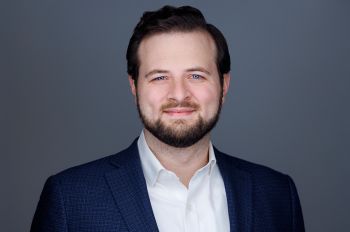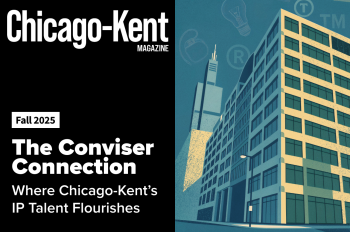"Appellate Courts as First Responders" by IIT Chicago-Kent Distinguished Professor Joan E. Steinman wins the AAAL Eisenberg Prize
Appellate Courts as First Responders: The Constitutionality and Propriety of Appellate Courts' Resolving Issues in the First Instance, a law review article by IIT Chicago-Kent College of Law Distinguished Professor Joan E. Steinman, has won the American Academy of Appellate Lawyers' (AAAL) 2011–12 Eisenberg Prize. Professor Steinman, whose article was published in April 2012 in the Notre Dame Law Review, will receive the prize during the AAAL spring meeting April 25 to 27, in Ottawa, Canada.
Professor Steinman, whose Georgia Law Review article Irregulars: The Appellate Rights of Persons Who Are Not Full-Fledged Parties was similarly honored in 2005, becomes the first scholar to win two Eisenberg prizes.
The Eisenberg Prize was established by the AAAL to recognize and encourage publication of high-quality articles in the field of appellate practice and procedure, and to honor the memory of Howard B. Eisenberg, an early member of the Academy who served as dean of the Marquette University Law School from 1995 until his death in 2002. During his legal career, Dean Eisenberg argued more than 300 appellate cases before state and federal courts, served as chief state public defender of the State of Wisconsin, wrote that state's public defender statute, and worked as executive director of the National Aid and Defender Association in Washington, D.C. Prior to joining Marquette University, he was a member of the Southern Illinois University School of Law faculty and served as a professor of law and dean at the University of Arkansas at Little Rock.
Professor Steinman's prize-winning article examines the occasions on which courts of appeals—including the U.S. Supreme Court—address and decide questions unresolved by a trial court judge. In such instances, the appellate courts work outside their traditional role of reviewing the decision of another tribunal. "The Supreme Court has declared that intermediate federal courts of appeals (IFACs) have discretion to decide when they will address such issues," writes Professor Steinman. After a survey of the literature, her article sets forth a four-part analysis of the issues. Professor Steinman also offers a proposal to govern the circumstances under which a new issue should be heard on appeal, and considers whether and when the U.S. Supreme Court should have more leeway than IFACs.
A member of the IIT Chicago-Kent faculty since 1977, Professor Steinman teaches courses in civil procedure, complex litigation, and appellate courts. She served as interim dean in 1990–91 and was named a distinguished professor in 1999.
Professor Steinman has authored articles on the associational privacy privilege in civil litigation, class actions, suits for money damages to vindicate First Amendment rights, pseudonymous litigation, law of the case doctrine, removal, supplemental jurisdiction, the effects of case consolidation on litigants' procedural rights, appellate jurisdiction and other procedural issues. She is responsible for two volumes of the Wright, et al., Federal Practice and Procedure treatise, and co-authors a casebook on appellate courts.
Professor Steinman completed her undergraduate education at the University of Rochester and earned her J.D. from Harvard Law School, where she served on the Harvard Civil Rights-Civil Liberties Law Review. She was admitted to the Illinois Bar in 1973 and practiced with the Chicago law firm of Schiff Hardin & Waite from 1973 to 1977, specializing in civil litigation.
Professor Steinman was the 1992 chair of the Association of American Law Schools Complex Litigation Committee of the Civil Procedure Section. She was a member of the American Law Institute Complex Litigation Project Consultative Group, has served on the executive committee of the AALS Civil Procedure Section, was appointed to the Seventh Circuit Advisory Committee on Circuit Rules, and was a master in the Chicago-Lincoln American Inn of Court. Most recently, she was an adviser on the A.L.I. Federal Judicial Code Revision Project.
At IIT Chicago-Kent, Professor Steinman was named a Norman and Edna Freehling Scholar in 1989. She subsequently earned the Dean's Prize for Excellence in Teaching, and received awards from the American Academy of Appellate Lawyers, the IIT Chicago-Kent Moot Court Honor Society, the IIT Chicago-Kent Student Bar Association, and Illinois Institute of Technology.
Founded in 1888, IIT Chicago-Kent College of Law is celebrating "125 years of distinctive legal education." IIT Chicago-Kent is the law school of Illinois Institute of Technology, a private, Ph.D.-granting institution with programs in engineering, psychology, architecture, business, design and law.



